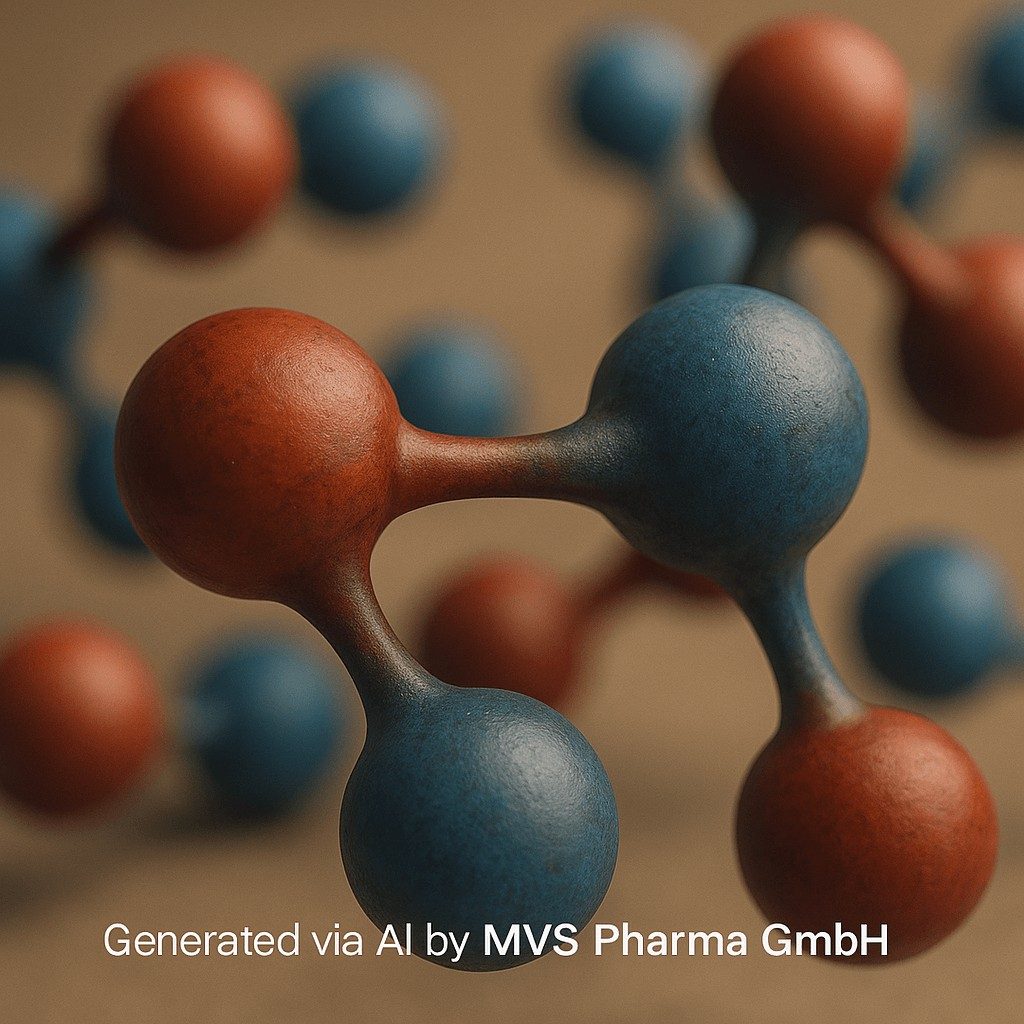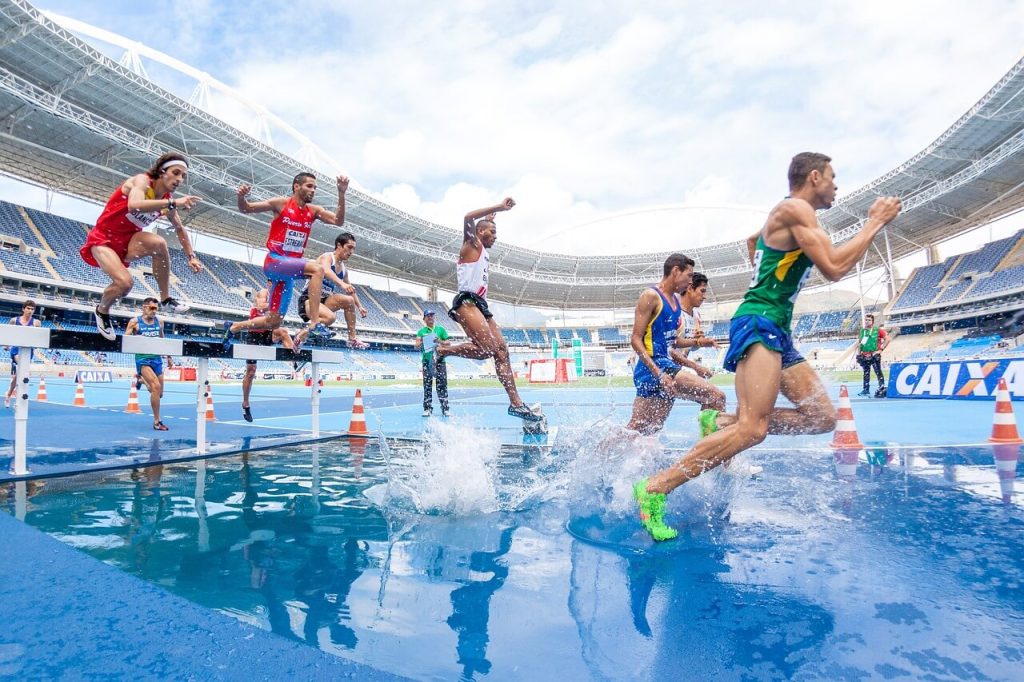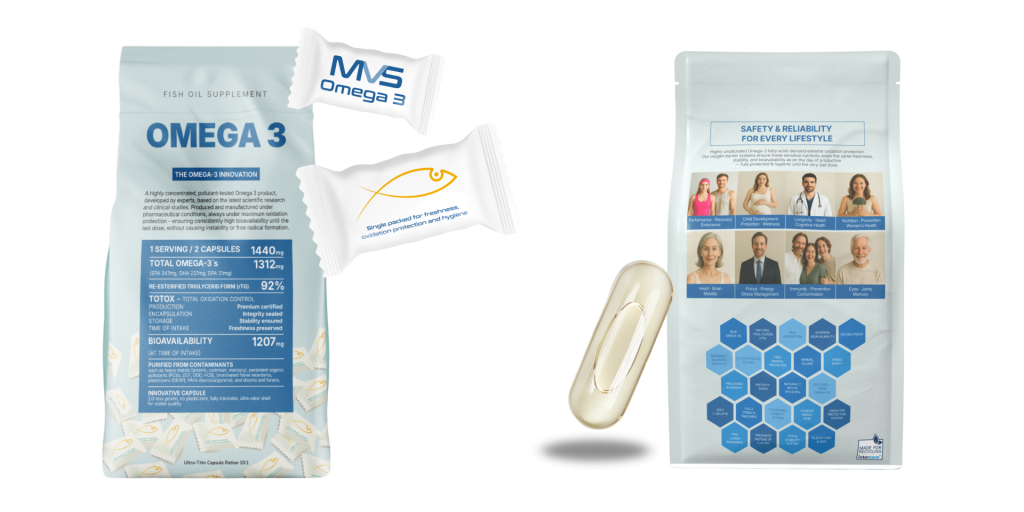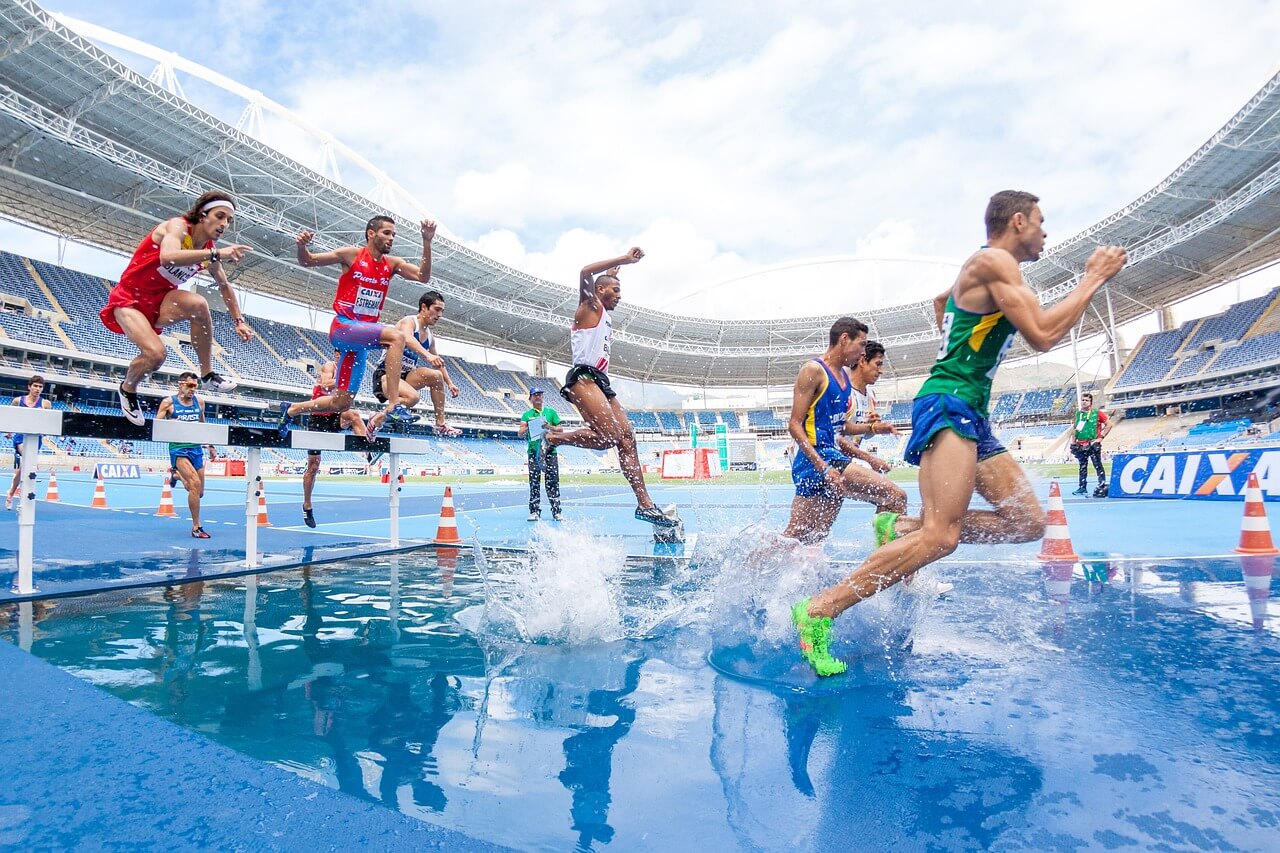Table of Contents
Introduction: The Athlete’s Edge Hidden in Nutrition
No matter the discipline — running, cycling, swimming, weightlifting, football, or combat sports — one principle unites all athletes: performance depends on recovery, endurance, and cellular resilience. While protein, hydration, and training intensity often steal the spotlight, modern sports science points to one nutrient with game-changing potential: Omega-3 fatty acids (EPA and DHA).
In 2025, researchers confirmed what elite coaches and sports physicians have long suspected: Omega-3s enhance athletic performance by improving oxygen efficiency, muscle recovery, inflammation control, focus, and heart function.
This guide breaks down how Omega-3s impact every major aspect of sports performance — and how to choose the right supplement for professional results.
What Are Omega-3 Fatty Acids and Why Do They Matter in Sports?

Omega-3s are essential fats that the body can’t produce efficiently on its own. They must be obtained through diet or supplements.
- EPA (Eicosapentaenoic acid): Supports heart function, reduces inflammation, and accelerates muscle repair.
- DHA (Docosahexaenoic acid): Enhances cognitive performance, focus, coordination, and reaction time.
- ALA (Alpha-linolenic acid): Found in plants but poorly converted (<5%) to EPA and DHA.
For athletes, EPA and DHA are the true performance molecules — optimizing cardiovascular, muscular, and neurological systems simultaneously.
Why Athletes Are Often Deficient in Omega-3s
Even among elite athletes, Omega-3 deficiency is common due to:
- Low fish consumption.
- Heavy training increases oxidative stress and Omega-3 utilization.
- Diets rich in Omega-6 oils (which compete for the same enzymes).
- Supplementation is often overlooked in favor of protein and amino acids.
Result: Chronic low-grade inflammation, slower recovery, impaired endurance, and higher risk of injury.
Omega-3 Benefits for Athletes
- Endurance & Oxygen Utilization
- Omega-3s improve red blood cell flexibility, allowing more oxygen to reach muscles.
- They enhance endothelial function, promoting better circulation.
- Reduce heart rate and oxygen cost during exercise — meaning athletes can maintain higher output with less fatigue.
- Greater endurance and energy efficiency.
- Lower fatigue during prolonged exertion.
- Better performance in aerobic sports like swimming, running, and cycling.
- Pro tip: Athletes supplementing with 2 g/day EPA+DHA improved VO₂ max by 10–15%.

- Muscle Recovery & Reduced Inflammation
- EPA and DHA reduce inflammatory cytokines (IL-6, TNF-α).
- Stimulate SPMs (specialized pro-resolving mediators) that accelerate healing.
- Improve membrane fluidity, allowing nutrients to reach muscle cells faster.
- Faster recovery between sessions.
- Reduced soreness and stiffness.
- Higher training consistency and progression.
- Pro tip: Athletes supplementing with Omega-3s recovered 25–35% faster between training sessions and experienced less soreness.
- Strength, Power & Muscle Growth
- Omega-3s enhance muscle protein synthesis (MPS) by activating the mTOR pathway.
- Improve amino acid uptake into muscle tissue.
- Reduce inflammation that inhibits muscle repair.
- Better muscle quality and retention.
- Enhanced gains from resistance training.
- Improved recovery during calorie restriction or weight management.
- Joint Mobility & Injury Prevention
- Omega-3s reduce cartilage degradation and joint inflammation.
- Improve synovial fluid viscosity and protect against overuse injuries.
- Healthier joints, lower injury risk, and greater longevity.
- Cardiovascular Performance
- Omega-3s lower triglycerides and LDL cholesterol, improve HDL, and support heart rhythm stability.
- Enhance stroke volume — the heart’s efficiency per beat.
- Enhanced endurance and cardiovascular resilience.
- Reduced post-exercise inflammation.
- Cognitive Function, Focus & Coordination
- DHA enhances nerve transmission speed and brain-muscle communication.
- EPA supports neurotransmitter balance, reducing stress and anxiety.
- Sharper focus, better coordination, and faster reaction time under fatigue.
- Immune Support & Overtraining Protection
- Omega-3s regulate immune function and reduce cortisol levels.
- Athletes using Omega-3s had fewer respiratory infections and faster recovery from overtraining fatigue.
- More consistent performance.
- Fewer missed sessions due to illness.
- Body Composition & Fat Metabolism
- Omega-3s increase fat oxidation and promote energy efficiency.
- Improve insulin sensitivity and help maintain lean muscle mass.
- Leaner physique and improved power-to-weight ratio.
- Vision & Reaction Time
- DHA enhances visual acuity and tracking speed.
- Improves reaction to fast-moving stimuli in competitive sports.
- Emotional Balance & Motivation
- EPA supports stress resilience and mood regulation.
- Athletes benefit from improved motivation and calmness under pressure.
- Stable mood, mental clarity, and consistent performance.
Summary: Benefits of Omega-3 for Athletes
Omega-3s are a powerful ally for athletes, enhancing endurance, muscle recovery, joint health, and focus while reducing inflammation and fatigue. They support the heart, brain, and metabolism — helping athletes perform stronger, recover faster, and sustain peak performance naturally.
Recommended Omega-3 Dosages for Athletes (2025 Update)
| Athlete Type | EPA+DHA Daily Dose | Primary Benefits |
|---|---|---|
| Recreational/active lifestyle | 500–1000 mg | Heart & joint health |
| Endurance athletes (runners, cyclists, swimmers) | 1000–2000 mg | Recovery, endurance, oxygen use |
| Strength athletes (gym, CrossFit, combat) | 2000–3000 mg | Muscle repair, anti-inflammation |
| Elite/professional athletes | 2500–3500 mg | Peak performance, recovery, immune stability |
Pro Tip: Take Omega-3s with meals containing healthy fats for best absorption.
Purity & Anti-Doping Safety: Why Professional Athletes Must Choose Certified Supplements
For professional athletes, supplement quality isn’t just about health and performance — it’s also about career protection. Even trace contaminants or undeclared substances can lead to positive doping tests and disqualification.
Why Purity Is Critical:
- Some supplements contain undisclosed stimulants or hormones.
- Cross-contamination during manufacturing can introduce banned substances.
- Many products lack third-party testing and transparency.
Anti-Doping Standards
Professional athletes should only use products that are:
- Rigously purified supplements under GMP and ISO certification.
- Batch-tested for contaminants and banned substances.
- Certified doping-free by programs like Informed-Sport, NSF Certified for Sport, or Kölner Liste.
Key takeaway for Omega-3 for athletes:
Purity is performance protection. Certified supplements ensure clean competition, safety, and eligibility.
Food vs Supplements for Athletes
| Source | Pros ✅ | Cons ❌ |
|---|---|---|
| Food (Fish, Algae, Nuts/Seeds) | – Natural nutrient source (protein, vitamin D, selenium). – Algae = vegan DHA option. | – Many athletes lack time for consistent fish intake. – Risk of contaminants (mercury, PCBs, microplastics). – Plant ALA converts poorly to DHA. |
| Supplements (Purified Omega-3) | – Controlled doses for performance goals. – Purified of toxins. – rTG form = superior absorption. – Convenient for travel/training. | – Quality varies by brand. – Bulk bottles may expose oils to oxidation |
MVS Pharma’s Commitment to Purity – Why Form, Freshness & Packaging Matter
At MVS Pharma, we understand that purity isn’t the only critical factor for omega-3 bioavailability. Since the start, we have been addressing the problem of oxidation and rancidity in Omega-3 supplements long before it became an industry trend. From day one, our team of pharmaceutical and medical experts has emphasized oxidation prevention as the single most critical factor determining both the safety and efficacy of Omega-3 products.
Oxidation doesn’t just affect freshness — it directly compromises bioavailability, reducing the body’s ability to absorb and utilize essential EPA and DHA. That’s why MVS Pharma developed a production system for our superior MVS Omega-3 supplement, which is focused on oxidation control at every stage, from raw material sourcing to encapsulation.
MVS Omega-3: The Superior Fish Oil Supplement
At MVS Pharma, we are addressing the critical shortcomings of today’s Omega-3 supplements by developing a solution that meets the highest standards of purity, freshness, and absorption.

- Oxidation Resistant: Freshness maintained from first capsule to last — proven by strict TOTOX control.
- Highest purity → Our omega-3 oil is manufactured in accordance with strict standards and with pharmaceutical-grade-like care, purified using a sophisticated process.
- Superior absorption: Advanced re-esterified triglyceride (rTG) form.
- Clean & safe: Free from heavy metals, PCBs, microplastics.
- Sustainability: Responsibly sourced small fish, fully traceable.
- German manufacturing: GMP & ISO-certified conditions.
- Double protection packaging: Each capsule is sealed individually, then stored inside protective pouches for unmatched stability.
This sets a new benchmark in supplement quality — no shortcuts, no compromises.
Summary: Omega-3s — The Athlete’s Performance Multiplier
Omega-3s are now recognized as a foundational nutrient for sports performance and recovery. They enhance endurance, accelerate recovery, protect the heart and joints, sharpen cognition, and build resilience against overtraining and inflammation.
For athletes who demand consistency and safety, rTG-form Omega-3s with pharmaceutical-level purification and doping-free certification are the ultimate competitive edge.
Disclaimer: As a service to our readers, MVS Pharma GmbH publishing provides access to our library of archived content in our blog. Please note the date of the last review or update on all articles. No content on this site should ever be used as a substitute for direct medical advice from your doctor or other qualified clinician.
FAQs
Why are Omega-3s important for athletes?
They improve endurance, recovery, muscle repair, joint health, focus, and cardiovascular performance.
How much Omega-3 should athletes take daily?
Between 1000–3000 mg EPA+DHA, depending on intensity and sport type.
Can Omega-3s reduce soreness?
Yes. They lower inflammation and muscle damage markers, speeding up recovery.
Are Omega-3s useful for both strength and endurance athletes?
Absolutely — they enhance oxygen use, muscle synthesis, and joint health across all sports.
What form of Omega-3 is best for athletes?
Re-esterified triglyceride (rTG) form offers superior absorption and stability.
What makes MVS Omega-3 different?
It offers oxidation resistance, superior absorption in rTG form, full safety testing, and double protection packaging — ensuring purity and potency from production to consumption.
Sources:
- National Library of Medicine: “Omega-3 Polyunsaturated Fatty Acids: Benefits and Endpoints in Sport”
- Science Direct: “Are There Benefits from the Use of Fish Oil Supplements in Athletes? A Systematic Review”
- Swimming World Magazine article: “Dr. Barry Sears Says, ‘Take Lots of Fish Oil!”: The Full Interview”
- Taylor and Francis Journal: “Adding omega-3 fatty acids to a protein-based supplement during pre-season training results in reduced muscle soreness and the better maintenance of explosive power in professional Rugby Union players”


